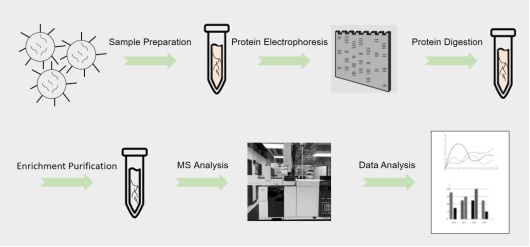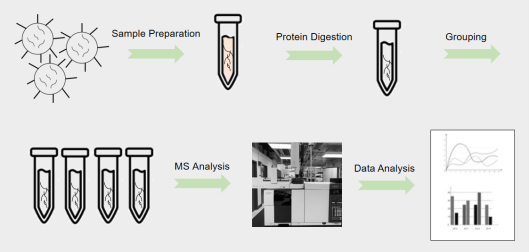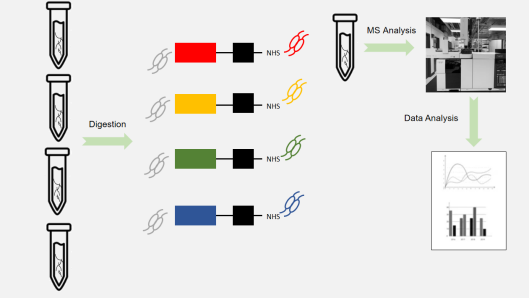Proteomics refers to the science of studying life phenomena and patterns holistically, dynamically, and quantitatively at the protein level using high-resolution protein isolation techniques and efficient protein identification technologies. Lifeasible provides professional exosome proteomics analysis services to identify and quantify proteins in exosomes.
Lifeasible provides a complete exosome proteomics service system, including proteome identification, qualitative and quantitative proteome analysis, and data analysis. In the exosome proteomic analysis phase, Lifeasible provides labeled, and unlabeled proteomic methods based on the overall experimental design and complete validation services.
Protein molecules in solution are enzymatically cleaved into a mixture of peptides, separated by liquid chromatography, tested by tandem mass spectrometry, and finally matched by searching with the appropriate database, allowing for the simultaneous identification of hundreds of proteins in exosomes.
Technical process

This technique uses isotope reagents or specific markers to label protein peptide amino groups in different samples, which can be separated by liquid chromatography and analyzed by tandem mass spectrometry (MS/M).
Technical process

The non-labeled quantitative method is to analyze the variation in the quantity of proteins from different sources of samples by comparing the number of mass spectrometry analyses or the intensity of mass spectrometry peaks. It is believed that the frequency of peptides detected by capture in mass spectrometry is positively correlated with their abundance in the mixture, so the counts of proteins detected by mass spectrometry reflect the abundance of proteins, and the number of proteins can be related to the mass spectrometry detection counts by an appropriate mathematical formula to quantification.
Technical process

Lifeasible's technology platform continuously lowers the upper limit of exosome proteomics assays. We have accumulated extensive project experience with samples, such as plant cultures, and can take on complex samples and project needs for research services.
Exosomal proteomics is currently used to study the biological functions of exosomal proteins in immune regulation, antigen presentation, cancer metastasis, tumor infiltration, vascular neoplasia, and neurodevelopment, as well as to reveal their role in marker screening and identification, drug target discovery, and functional mechanisms.
Lifeasible provides exosome proteomics services and other related services, and we have the expertise to help solve the problems your project encounters. If you are interested in our services, or if the service you want is not listed, please feel free to contact us, and we will get back to you as soon as possible.